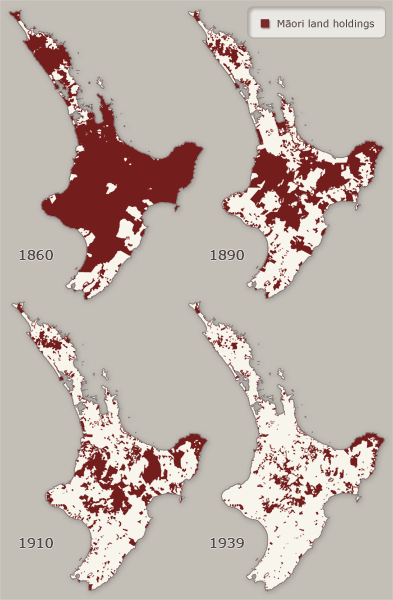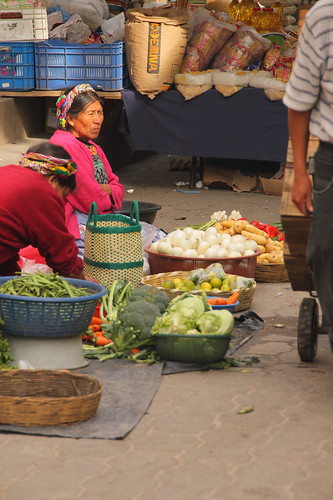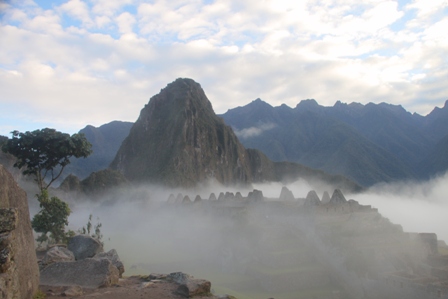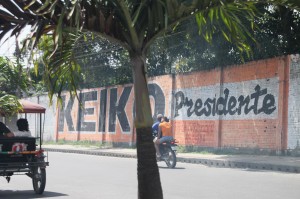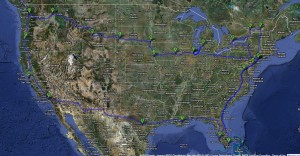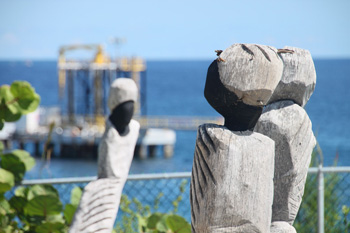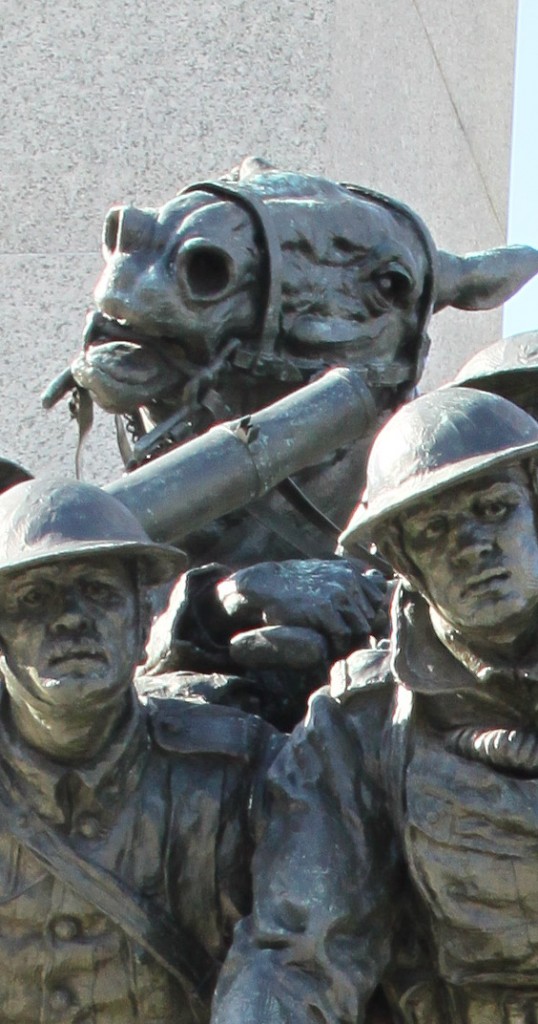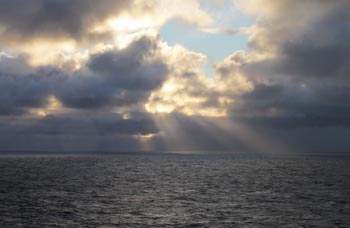
written 9th Jan
For the last few days I’ve been enjoying the luxuries of the Cunard White Star Line ocean liner “Queen Victoria“, as it makes its way across the North Atlantic from Southampton England to New York. We’re currently just entering the shipping lanes of the East coast of America, above the island of Nantucket, and I’m watching the container ships gather on the horizon from the luxury “Commodore Lounge” at the top of the ship. I say luxury because I’ve sadly found that these cruise liners aren’t really built for travelling across oceans: they’re built for “cruising”. By and large, my fellow guests are retired, well-off and in couples; whereas I am a single young man: one of only two that I have met on board. Most guests seemed to have “cruised” before – one retired English couple blaisely spoke to me about their 10th world cruise. Clearly I have very different motivations from almost everyone on board: my motivation has been Slow Travel and minimising the damaging greenhouse gas emissions that flying to New York would have caused. My young friend – a philosophy lecturer in his late 30s – shares my motivation about slow travel, but his main motivation is fear of flying. Unfortunately, because of the social scene these cruises don’t seem to lend themselves to be enjoyed by youngsters (under 50). And, perhaps because the motivation for most guests is not to ease pressure on our shared global environment, the effect is not particularly environmentally friendly either.
Personally I could do without the grand “Royal Court Theatre” that occupies the forward parts of decks one to three. And as much as I’ve personally welcomed the small onboard gym I could probably manage with just the one swimming pool (not three). But with a casino, a ballroom, a disco, four restaurants and many more cafes and bars, the Queen Victoria sets itself up to be a high “consumer” of energy and resources.
In fact, before booking the journey I was pained to find that ocean liners typically use 120 kWh of energy for every “100 passenger kilometres”. That’s in fact more than an Boing 747 airliner, at – depending on fullness – between 30 and 53 kwH per 100 passenger kilometres [according to David MacKay’s very useful “Sustainable Energy Without the Hot Air” (p.128)]).
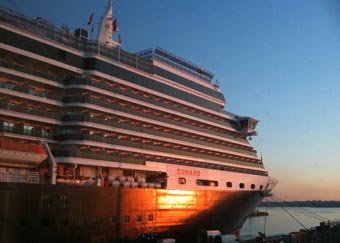
By Cunard’s own calculations the ship emits about 0.53070307 kg of CO2 per passenger mile. Multiplied by what I estimate as a rough distance for the trip of 3422 miles, that is a total of 1816.1 kg of CO2. That is alot of CO2, whichever way you look at it; more than most people in the world are responsible for in a year.
By contrast according to the calculator at Choose Climate the same distance by plane would create only 650kg of CO2. So, what on earth am I, as a green, doing taking a form of transport that emits more CO2 than a plane…?? The answer is two-fold: the first is that the plane’s CO2 emissions are not the whole story. We know these days that due to the total warming effect of CO2 plus H2O (contrails) plus Nitrous Dioxide in the upper atmosphere, the damage from an aeroplane at 40 000 feet is effectively tripled, so that the original 209 kg of fuel which burns with twice the amount of oxygen to create 650 kg CO2… creates 1949 kg of CO2-equivalent warming effect, delivered direct to the upper atmosphere, where it does instant damage.
So already, with this amendment, even the ship’s vast CO2 emissions per passenger just narrowly beat the plane’s.

The Queen Victoria's extravagance is a barrier to mainstreaming ocean travel
Secondly, however, I wanted to travel by sea for a different reason: I was simply damned if I was going to fly.
Apart from anything else, if there is no viable alternative to taking the plane, where is the consumer choice in that, and what does that say about our society’s one-track version of progress? It seemed obvious to me that surface travel by ship should be less environmentally-damaging than air travel, and when I was unable to find a suitable passenger-carrying container-ship, I turned to ocean liners as the next most environmentally-friendly way to get across the Atlantic (needless to say, if I had been able to find a container ship on which to travel then the environmental impact of my presence on board it would have been truly negligible, as MacKay’s book discusses).
Aside from the aesthetic slow travel aspect (which has been wonderful), the high figure of the ship emitting 1816.1kg of CO2 on my behalf on the journey also accounts for my being put up in 4 star hotel luxury for seven days with a la carte meals three times a day (it’s a battle to get out of the restaurant at any point during the day and do something to work off the calories), entertainment, shops, and a support team of 1000 staff (one for every two guests).
Herein lies part of the hope I feel for ocean travel as a (more) sustainable alternative than plane travel. Plane staff could barely be pared back. But (labour considerations aside) downscaling a ship’s staff complement/guest experience by a third would reduce the experience to a mere 3 star luxury, which would be quite enough for me. Because the Queen Victoria with all its luxury already manages a lower overall level of climate-damage than an aeroplane, just think what could be achieved by trading in some of the luxury and adding some more environmentally-inclined processes to the ship’s layout and systems. A ship that was truly designed for moving people across oceans rather than being a floating hotel for well-off retireees could I’m sure give the aeroplane a run for its money in terms of environmental credentials. With the right investment and market conditions, a new era of ocean-going travel could provide a viable and more-environmentally-friendly alternative to transatlantic flights.
And lower prices might allow a greater diversity of people to enjoy the experience of slower, more environmentally friendly travel.
